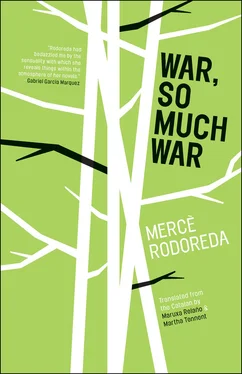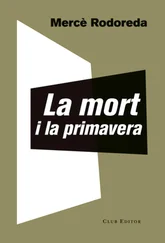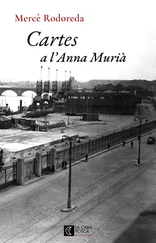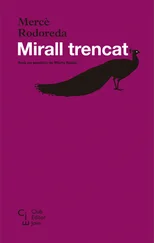Time passed quickly those first few weeks. Little by little he grew accustomed to acting the part of the idle property owner. After living for so long in family-run lodgings and pensions, the house seemed to him a palace. He asked the carpenter to build him more shelves to hold the books he had brought from Barcelona, old tomes with strange names: a book of advice on dealing with the devil, a book about the confessions of the saintliest saints. He moved into the house in mid-autumn. Seated at his desk on the second floor, he had a view of the sea, the choppy waters, the great surging waves.
On turning a page, I came upon a few brief notes explaining his difficulty in recalling a certain dream. Many details had slipped his mind, and others had appeared only to vanish again, all of it welling up from the deepest recesses of his spirit. Wishing to relive a dream is futile, Senyor Ardèvol wrote. He explained that he had never dreamed that he was blinded by the sun, never dreamed of colors, never heard any sounds or people talking or screaming. . and yet on that particular night he had dreamed in vivid colors. He recalled a storm from which he had struggled to escape. The wind upturned leaves he could not see but whose suffering on the branches he could feel. Drops of water fell from every leaf as though the entire orchard were weeping, blinded by lightning, furiously shaken by the winds. But before he could retell that night’s dream, which had left him riddled with anxiety, he said he first needed to discuss the issue of knives and the fear they had caused him as a child.

The mere sight of a knife forced him to close his eyes; it terrified him. There had been a boy, Fermí Baixeres, who was the best student in his class and had stirred many of his classmates’ interest with the odd things he said and did. One morning during recess, near a grotto with a saint’s shrine surrounded by hydrangeas, the boy had stood in the middle of a group of admirers and announced that he was going to cut his hand to the bone to show them how little he cared about physical pain. Fermí had greyish-blond hair and eyes so blue they seemed empty; the clique of boys who disliked him — there were those, too — had nicknamed him “symphony in grey.” He was thin, with broad shoulders and arms that were too long for his body. He had once said in jest that he was clearly descended from the chimpanzee. It was a kitchen knife with a thick handle and a thin, sharp blade. Concentrating, the tip of his tongue between his teeth, Fermí traced a line that started from his palm and ended at the base of his little finger. Over and over he ran the knife along the line, till gouts of blood welled forth. The boys watching him held their breath. And perhaps he would have accomplished what he set out to do, which was to cut deeper until he hit the bone, had he not first collapsed to the ground like a sack of potatoes.

There was no knife in that night’s dream, but there was a dagger with an undulated blade, perforated with five holes. The following day Senyor Ardèvol had the same dream. This time, it was not a dagger but a sword. The first dream had begun with wind rustling the leaves under a sky of black clouds pierced by streaks of lightning. He had never known how to describe a tempest, much less one born of emptiness, one that filled him with forgotten sensations that wiped out everything in their wake, as if calmly tossing everything into a well to meld with time and color. In the dream he found himself walking through an unfamiliar village in a driving rain when he came upon a small square with houses on three sides, none more than two stories high, with tiled roofs. On the fourth side, atop a low wall with an iron railing, sat a grey cat with eyes like Fermí Baixeres’s, looking at him, studying him. He did not know how he had arrived at the square. The rain stopped. Everything was soothing. Decorated with flowering plants, the windows seemed full of people whom he could not see but could feel watching his every move, as was the sitting cat. And suddenly he found he was dressed in a fashion typical of ages past, a loose-fitting frock that covered his shoulders and fell to his feet. Standing in the middle of the penumbral square, with the cat’s eyes glimmering, the thick quietude clouded his senses. Had his perception failed him? The loose-fitting frock, which had appeared black, was in fact white with an embroidered cross in the center of the chest, like the frocks worn by the entourage that accompanied him. He was approaching a shadowy patch. From it slowly emerged a figure, also dressed in white, also bearing a cross in the middle of the chest, with arms wrapped in chain mail, as were all the men’s arms, including his own. When they were abreast of each other, the figure extended an arm. His hand held a moon-colored sword with an iron hilt. The tip of the sword grazed his forehead and the flat of it came to rest first on one shoulder, then the other. And everything faded as if it were somehow being pulled from afar. Around him remained only the houses, the wall with the railing, and the cat staring at him. At that moment he sensed a presence behind him. He wanted to turn around but could not, he felt a dagger sinking into his back. A puddle of blood formed at his feet and he collapsed.
The dreams had shaken Senyor Ardèvol so much that he had to flee. He rushed to Arenys de Mar to visit Aran. He told his friend that he needed to take a long trip; his mental health was at stake, but the idea of embarking on a trip alone made him anxious. Aran had smiled, poured him a large glass of cognac, and confessed that he had had a longstanding interest in Gothic cathedrals and had wanted to visit Chartres for some time. His friend’s need for a trip was the enticement he sought for his own journey.

The two men arrived in the village where they had resolved to spend the night. Everything Senyor Ardèvol saw, the streets along which he walked, the houses on either side of the streets, the portals, the balconies, everything, everything , seemed strangely familiar. He did not mention any of this to his friend, but Aran must have sensed that something was troubling him because he asked him several times if he was unwell. Senyor Ardèvol responded that the journey by car had fatigued him, but that a good night’s sleep should restore him. He had a light dinner and fell asleep shortly after retiring. The sheets had a pleasant smell of old-fashioned wash — lavender, he thought — and the pillow and the thick duvet were stuffed with feathers. He awoke with a start, the night still pitch black. And however much he tried he could not fall asleep again. He was inclined to rise, but what would he do then? And even as he was telling himself that he would not get up, he jumped out of bed and dressed. The streets were deserted. There was not a soul in sight. From a market came the stench of rotting vegetables and stale meat. From atop a belfry, the bell tolled; it was four o’clock. He thought of Henry IV, whose name he had seen engraved on the tower of some palace. An urge that came from deep within prompted him to enter the village square: It was the one in his dream. On three of its sides stood two-story houses with tiled roofs and flowers in the windows. Atop a low wall with a railing, a grey cat stared at him. He planted himself in front of it, but the cat did not move or avert its gaze. Its eyes were fixed on his, and it was he who had to turn his head to escape them. A tempest of thoughts left him paralyzed in the center of the square. He felt as though a steel blade were being driven into his back. He wiped the sweat from his brow. . Toward the east, a tender light heralded the day. His head was spinning as he left the square. The cat was still perched on the low wall. The sky was already pink when he entered the hotel.
Читать дальше













